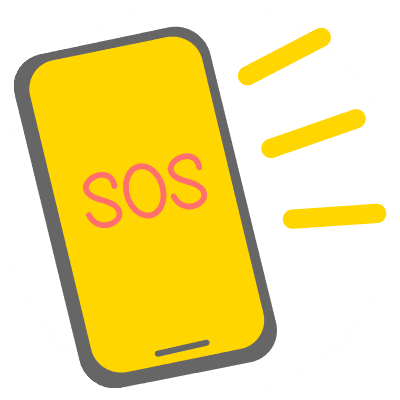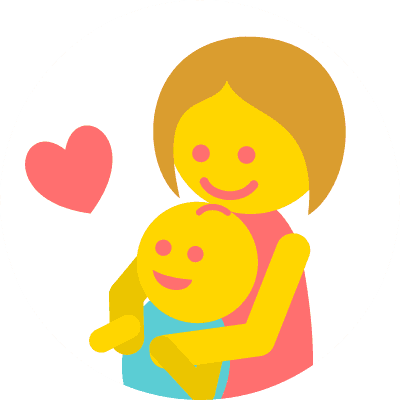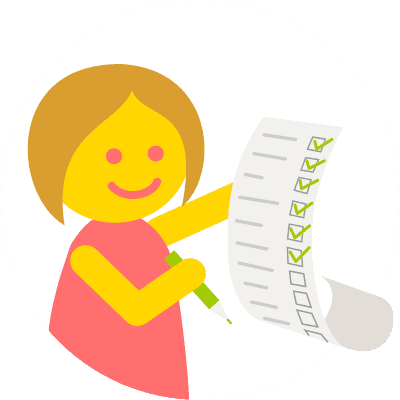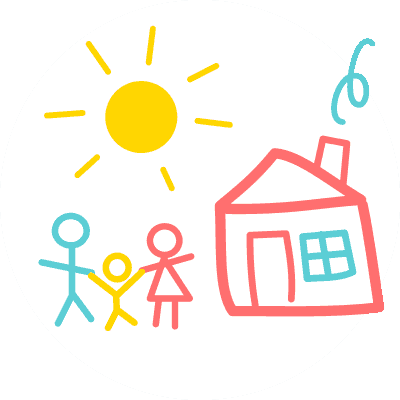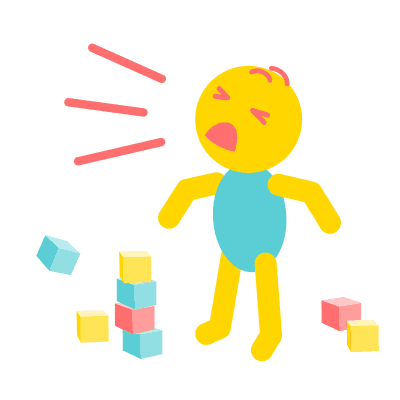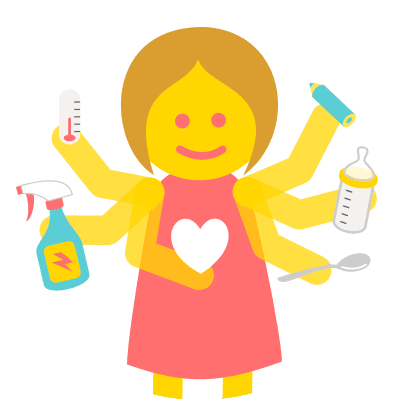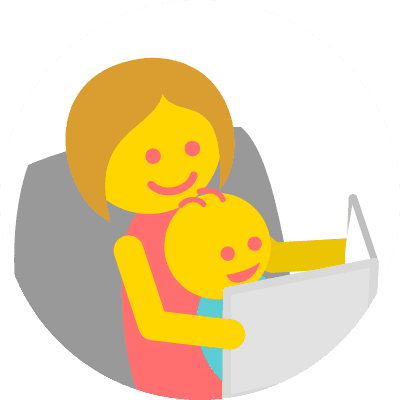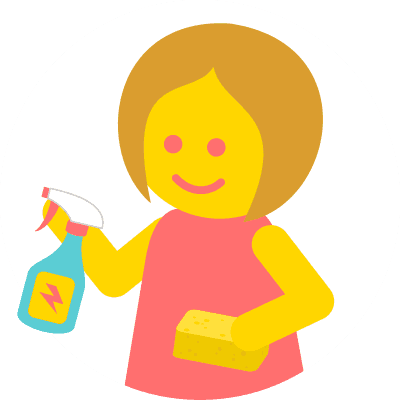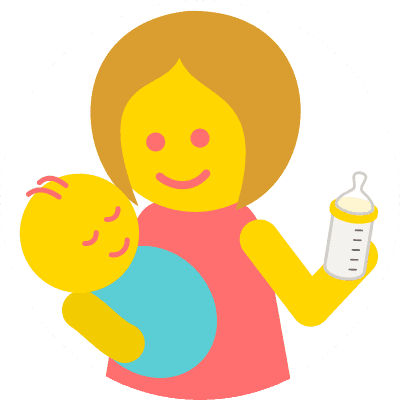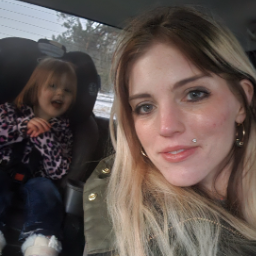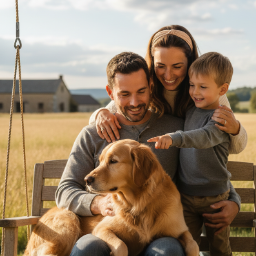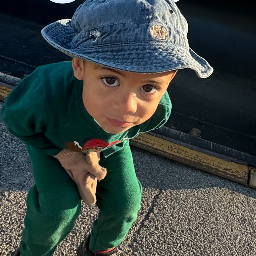How to Stay Safe When Babysitting (Essential Tips You Should Know)
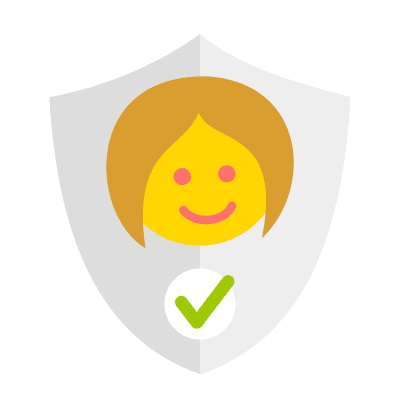

Written & Illustrated by
Matthew James Taylor
Kidsit Founder, General Manager

Babysitting Safety Video by
Lydia Kutz
Babysitter, Infant Swimming Resources Instructor
Key Takeaways
- Trust Your Instincts: If something feels off during the interview or job, it's okay to walk away.
- Always Meet in Public First: When meeting a new family, choose a public place during daylight hours.
- Bring a Buddy: Especially for minors, have a trusted person accompany you to the first meeting or job.
- Share Your Schedule: Inform a friend or family member of your whereabouts and expected return time.
- Keep Emergency Info Accessible: Have a list of emergency contacts, including parents' numbers and local emergency services.
Babysitting is an awesome job that lets you make great money. It’s also good work experience and a fun gig, especially if you like kids!
The flip side to that, though, is that there are a few things you should watch out for. In this post, let’s go over some of these things and how to keep yourself safe when you’re on the job.
Lydia has been working in the childcare industry for 15 years, and owned a childcare agency in Florida, USA for 7 years. In this video she interviews Police Officer Keith Bowling of the Largo Police Department about what you should do as a babysitter to stay safe before, during, and after a job.
The Interview
While you're meeting a family for the first time before taking the job, first of all you want to be aware of who you are dealing with. If someone has contacted you and said 'hey, I normally babysit for this family but they need a sitter on Saturday but I can't do it can you fill in for me?' go ahead and get some information. You might want to do a little background check, ask around, and make sure that they're familiar with them and try to get a little background information about them.
When you are actually going there it's important to be observant of the home. I would always suggest that the first time you ever go to a home that you take someone with you. If you are a minor I suggest taking a parent. A lot of times a minor might think well I don't want to take my mom or dad because I want to show them that I can do the job and I would have that conversation with mom and dad ahead of time and just say 'I want you to come along just for my safety'. One of the things that this does is it lets the potential family you're going to work for know that you are part of a bigger group that's concerned about your safety.

Police Officer, Largo Police Department
Largo, Florida United States
Safety starts with the first meet. You need to be careful with who you expose yourself to, particularly with people you’ve never met before. If you’ve been advertising publicly, like by posting your information online and in public areas, then you should be especially cautious.
Read our guide How to staying safe online as a babysitter for some essential safety rules you should follow.
There are a lot of creeps out there! Here are some questions to ask the inquirer before you meet face to face (ideally over the phone):
- Where did you get my contact information?
- How many children do you have? What are their ages?
- How often do you use a babysitter? Have you used a babysitter before?
- If the family has used a babysitter before, ask for a phone number. Check with the previous babysitter to ask about the family.
(For a complete list of the best questions to ask parents see our article: What should babysitters ask parents, did you know that the right questions can give you the edge over other candidates?)
Afterward, it’s likely that the family will want to meet with you in person. The safest option is for you to meet them in a public place during the day, like a nearby park. If you’re going to meet in the home, consider bringing a friend with you.
The interview is also a great opportunity to share what you’re willing to do and what you’re not comfortable with. For example, if you’re not ok with babysitting when the parents are home, or with letting friends/family members in the home while you’re working, this is the time to speak up.
During the interview, trust your gut! If you’re getting weird vibes, get outta there! A few hard-earned bucks aren’t worth ignoring your spidey senses for.
Are you going to babysitting job interviews? See our helpful articles:
- What to bring to a babysitting interview
- What to wear for job interviews
- What to expect at an interview
The Information List
This is where it really pays to be well organized. Keeping a list of all the info that you or anyone else might ever need is a great way to protect both yourself and those in your care.
The best way to get the most out of the information list is to have one copy for yourself and one copy to leave at home or with another person you trust. An alternative to making a physical copy is to snap a pic of the record and send it to someone so that they have it as a reference. This can be much more convenient since it can be updated on the fly.
Here’s the info that should be included in this package as it relates to safety:
Family Information
It's appropriate to say to a family 'I know that you are looking out for the safety of your children, and that's understandable, but I am also looking out for my safety, so in light of that I'd also like to get some information from you'. You can ask for things like their name, or you can get a copy of their drivers license, just so you know exactly who you're dealing with.

Police Officer, Largo Police Department
Largo, Florida United States
Make sure that you keep a good record of where you will be. Include the full address of the home, the names of the family members, and the times that you will be there working. Include a home phone number and other contact info of the residence where you’re working.
Make sure that you carefully keep a record of when you expect to come home. That way, if you’re not home and it’s getting late, someone will know when to check in on you to make sure that everything’s ok.
Emergency Contacts
Your phone is going to give you access to the outside world when it's really important, so keep it on you at all times, not to play with while watching the kids, but for an emergency.

Babysitter, Infant Swimming Resources Instructor
St Petersburg, Florida, United States
Getting the parent’s cell phone numbers is a must. Beyond that, though, it’s a good idea to add people to the list that can arrive on the scene more quickly in an emergency. Good numbers to include are the neighbor, a family member like a grandparent, aunt or uncle, or someone else that’s nearby.
One safety point to keep in mind here is that it’s a very good idea to meet with these people on the list beforehand. Even if it’s just a quick meet and greet, at least you’ll know what these people look like if they need to come to help.
Beyond that, make sure that you have the phone numbers for emergency services – the local police station, fire department, and hospital. Not every emergency qualifies for 9-1-1 (in fact, many don’t) so it’s good to be able to directly contact the service that you need.
See our free emergency contact sheets which have all the important numbers in case of an emergency!
Make sure that your own emergency contacts are also recorded in this document. This is good if there’s an emergency that happens involving you. For example, what if you have a freak accident and the parents come home and find you unconscious? They should be able to contact someone that will able to meet you at the hospital.
Our handy parent details form is perfect for recording necessary contact information.
Other Information
Other useful information to include are things like medical information for both the children and yourself. For example, medical history and allergies (both for foods and medication) should be noted for everyone. Another thing might be any medical restrictions that would affect the possible treatment of that person.
Basically, record everything that you would feel compelled to tell a doctor if that person was being wheeled into the ER. This is also a really practical place to record any special instructions. For example, how to set the alarm or lock up the house.
Safe from Physical Injury
This is really commonly overlooked. There are several physical hazards on the job that you should both be aware of and take precautions against. If you get something like a back injury, this could put you out of commission for weeks!
Lifting
As a babysitter, it’s pretty likely that you’ll be exposed to a risk of strain. Kids love to be carried and to climb. They also don’t particularly care about your spinal alignment and footing.
A general rule of thumb is to not carry more than you can handle. If you’re struggling to maintain your balance under load, then you’re probably overdoing it. If you’re trying to carry a child, then you should be especially careful to lift them properly.
To pick up a child safely, you should be facing the child and squatting. Have the child close to you before lifting. If you’re lifting with your back or extending yourself, you’re putting yourself at risk of a back injury. This isn’t just a problem for grannies, it’s actually really easy for even young, strong people to get hurt.
Another thing you should avoid is throwing the child up in the air. Even though kids love it and it’s an absolute blast to hear them screaming in delight, you’re at risk of two things: 1) you could easily strain a muscle by catching the kid the wrong way, or 2) you could drop the kid. Maybe you’ll do both. Neither are fun.
Environmental Hazards
As a babysitter, you need to be very aware of your surroundings. Kids don’t stay in one place, and clutter is always piling up.
Be especially careful to not leave toys around on the floor or on stairs. It can be really easy for either you or the kids to trip over a toy truck and land on your face at the bottom of the stairs.
Just remember to tidy up every room as you leave it, and don’t walk around the house with the lights dimmed or turned off. The parents definitely don’t want to come home to you and the kids knocked out cold in the basement.
You’ll also want to make sure that anything dangerous is made entirely inaccessible to the children. One example is gun cabinets. Ensure that they are locked up since nobody wants a 5-year-old child wandering around the home with a firearm. The same principle applies to other things like kitchen/hunting knives or medicine cabinets.
One other thing to be aware of is that not all homes are safe to be in. Some have serious mold issues or other air quality problems. Some have bed bugs. Be very alert to these things during the interviewing process, and don’t stick around if they become a problem.
Bedbugs alone can cost thousands of dollars to get rid of, and they can be an absolute nightmare if you bring them back to your home. Mold spores can leave you sick for a long time if you inhale them.
Dealing with Emergency Situations
You really do need to have a plan of action in case of an emergency. If the house is burning down, do you think that you’ll be able to calmly and logically formulate a safe and practical escape route and take care of those that you’re responsible for? Maybe, but it’s definitely not worth risking.
You need to be familiar with all the escape points, any possible tricks to opening stubborn doors, and a safe place that you and the kids can stay once you’re out. It might be a good idea to meet with the neighbors beforehand so that you could hide out in their house instead of on the street. This would be especially practical during the winter.
You should also go over some other plans that the family has in case of something like a natural disaster. For example, for tornadoes, is there a safe place in a cellar or under some basement stairs? Is it accessible?
Be aware of anything like carbon monoxide or smoke detectors in the home. Be familiar with the sounds they make, as well as how to disarm them as needed. You should also be aware of whether or not they will automatically inform the fire department. If not, you’ll need to have the means to contact them yourself.
Refer to our article: Fire safety tips for babysitters for more information.
This is where you need to know what problems are possible in your area and be aware of how to safely deal with them. When you’re babysitting, it’s you and the kids. You need to be able to handle things on your own.
Safe from Sickness
It’s actually pretty likely that you’ll have to deal with this on a regular basis. We’re not talking about a horrific disease, but a lot of parents just don’t put much effort into making sure that this babysitter isn’t exposed to nasty germs.
As a babysitter, you’ll be wiping boogers, cleaning up puke, getting sneezed and coughed on, and getting caked in germs on a regular basis. Sometimes this can’t be avoided; maybe the kid starts to develop symptoms on your watch.
If you haven't already, read our article; How to babysit sick kids for lots of sickness prevention tips.
Other times though, you just need to go over expectations before taking the job. You should discuss expectations with the parents in regards to whether or not you’ll be working when someone in the family is sick.
For example, what if one of the kids has the stomach flu? Or if the mom stays home with a really bad cold? Are you going to risk getting sick for a week just for one evening’s pay? This could affect other jobs you might have, or your ability to attend school.
If you do end up working while someone in the family is sick, you really do need to take a lot of extra precautions. For example, very frequent hand washing is really important! Also, try to avoid unnecessary physical contact with the sick individual. Bleach the bathroom and other areas frequently.
Lots of babysitters and nannies find it practical to carry a small bottle of hand sanitizer on their person. You’ll also want to be very cautious about other things like sharing food and drink or letting the kids touch your face.
Sometimes you're going to get sick no matter how careful you are, see this article for details on whether you should babysit when sick and how to manage parent expectations.
Safe from Accusation
It’s unfortunate, but this is something that is extremely important to take seriously.
There are a ton of abusers out there. Some estimates say that 10% of boys and 40% of girls are molested before the age of 18. This means that you need to make sure that you’re not in any kind of situation that would allow someone to accuse you of anything that could really affect your future.
There are a few practical precautions that you can take. For example, be especially cautious around children of the opposite sex. You’ll also want to be careful to avoid any excessive physical contact that could be misinterpreted as groping.
You also need to be very cautious about where you touch children. This includes when you’re lifting them up and playing with them.
Another thing to carefully consider is whether you want to change diapers, wipe bums, and get the kids dressed. Make sure that you have a frank conversation with the parents so that you understand what they want you to do. If something is off-limits, be very careful to not cross any boundaries.
The bottom line is that there needs to be a lot of trust in the child care arrangement. If something could be interpreted as a breach of trust, then stay far away from it.
Safe from Stranger Danger
There's so much out there in terms of scams and criminal activity that you really need to be aware of how to protect both yourself and those in your care. Here’s an overview of some areas where you need to be especially careful, as well as how to take reasonable precautions.
Keeping the Home Secure
You absolutely want to lock the door. You want to make sure that if you're in the back yard the front door is locked, and if you go to the front yard the back door is locked.

Police Officer, Largo Police Department
Largo, Florida United States
It’s extremely important that you keep the home inaccessible to strangers. This means properly locking up, both during outings and while staying inside the house. If someone knows that the kids are being babysat and the parents are away, that might put a target on the house.
One key thing to understand is how to properly secure the home and how to arm and disarm the alarm. This includes closing and locking the windows and doors. Don’t forget to keep an eye on any alternative entrances, such as the garage door.
Outings
The biggest thing is what we call situational awareness, just being observant of who's around you, who belongs, who doesn't belong, who is at the park who's not with children, is that a red flag? Who is around that you can go to if you have a problem, is there a park worker there or someone else that's nearby that you can go and talk to? Is there a place that you can go to, what we call an escape route, if there is a problem I'm just going to go straight over there and I'm going to talk to that park worker.
Also if you're out and about and you see someone, make eye contact with people because a lot of times people who want to do nefarious things are not wanting to be recognised and don't want to have that feeling of someone is watching me and taking note of what I look like. And that's another thing, if you see someone who's suspicious, make a mental note of what they look like.

Police Officer, Largo Police Department
Largo, Florida United States
If you’re taking the kids to the park, the pool, or somewhere else, you should be attentive at all times. Keep an eye out for any strangers that seem to be paying special attention to you or the kids. The classic example of not engaging someone that’s asking for help in finding his lost dog is well worth paying attention to.
You also have to pay extremely close attention to the kids. Don’t let them out of your sight, even for a few seconds.
Dealing with Visitors
Never answer the door to people that you don’t recognize. This is a common way for people to assess a home for subsequent robbery or other nefarious deeds.
One common approach that some criminals take is to impersonate a police officer or firefighter. They might knock on the door saying that they have some questions for you. If this happens, there’s something practical that you can do to verify whether or not they’re legit.
Ask for their badge number. Once you have it, call the police or fire department and ask for verification as to whether it’s a real officer at your door. If it’s a scam, then they’ll likely take off when you ask for the badge number. If it is an impostor, the police department will very likely do a sweep of the area to find them, since impersonating an officer is a criminal offense.
It’s also worthwhile to be equally cautious of anyone that claims to be a friend or family member that you’re unfamiliar with. Some sitters have a code word or phrase that they worked out with the parents. That way, if anyone is really sent by the parents, you’ll know that they are who they say they are.
Here’s one thing that’s extremely important: never identify yourself as the babysitter to strangers. This will only alert shady people that the parents aren’t home. It’s better to simply not respond to the questions of people that you don’t know.
When to Not Accept a Job
There will absolutely be times where the right decision is to turn down a job. If there’s anything at all that makes you uncomfortable about working with a family, then don’t do it.
Some potential reasons to turn down a sitting gig could be:
- Bad vibes from family
- The home is unsanitary
- The home shows signs of bed bugs or other insect infestations
- The parents expect you to work when a family member is sick and contagious
- The family wants to take the kids to areas that aren’t safe
- The family is asking you to do something that you aren’t comfortable with
If I observe a red flag I might not say anything at the time, I might wait until I leave, not make a commitment at the time, say 'let me check my calendar' and then after I have left I might say 'hey, I have a conflict, I'm not available', because we don't want to be in the residence with someone and say 'well this isn't going to work, I'm a little freaked out' and now you have to walk away from the situation.

Police Officer, Largo Police Department
Largo, Florida United States
Really, there are a lot of potential babysitting jobs out there. It’s really not worth taking on a job that you’re not comfortable with, or that carries a risk of something going sideways.
Keeping Kids Safe
Beyond keeping yourself safe, it’s absolutely critical that you keep the children under your care safe. When you’re babysitting, you’re the one responsible for the children, so you need to be able to handle unpleasant or emergency situations.
To be well prepared for this, it’s really practical to take a babysitting course, as well as first aid or CPR training. In some areas, this is actually mandatory for all child care providers. This will make you significantly more prepared to handle problems as they arise.
See my recommended babysitting courses.
Usually, these courses will only take you a day or two to complete. A major perk is that you can usually charge a little more since you’re more qualified. Either way, it’s really in the best interests of both you and the family to make sure that you’re as prepared as possible for unexpected events.
We also highly recommend all babysitters carry a portable first aid kit, so you always have emergency supplies with you!
Make sure that you are thoroughly aware of any medical issues that could come up for the children. For example, allergies, medical history, and any illnesses.
Be extremely careful with choking hazards around small children under 5. The rule of thumb is that anything smaller than a D-size battery is considered a choking hazard. Be very attentive to what the children are exposed to.
Pay close attention to any lack of baby-proofing in the home. This would include open access to stairs, unprotected electrical outlets, or hanging cords.
See our essential article How to be a safe babysitter for important tips.
Another practical step to take is to have a babysitting kit put together. This can include things like a basic first aid kit and all the emergency and medical information of everyone under your care.
If you want more information on how to build a complete babysitting kit, then you’ll want to take a look at this post: What Should I Bring to a Babysitting Job?
Ultimately, it’s your own responsibility to ensure the safety of both yourself and those in your care. Be alert and cautious around possible dangers right from the initial point of contact. It’s really worthwhile to take every reasonable precaution when babysitting.
Career babysitters should seriously consider getting nanny insurance, see our article: Do babysitters or nannies need insurance to learn if this is right for you.

